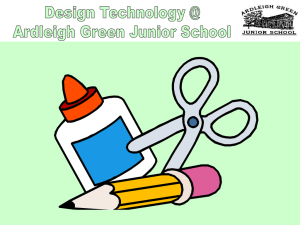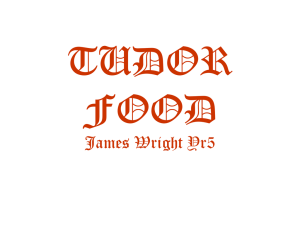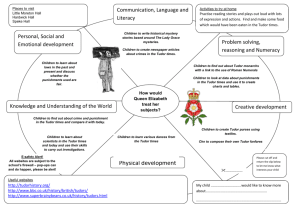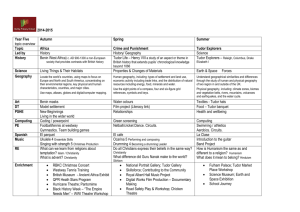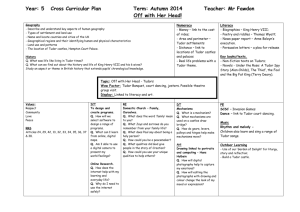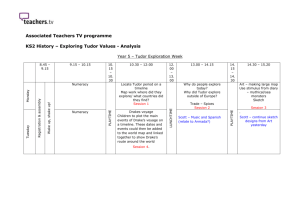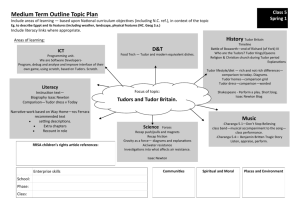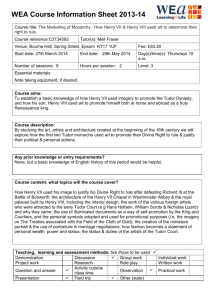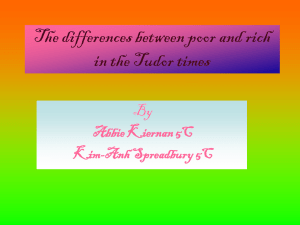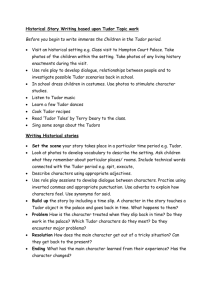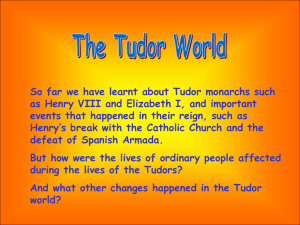Key Stage 2 Spring Term Topics, 2013 Year 4 English Text Level
advertisement
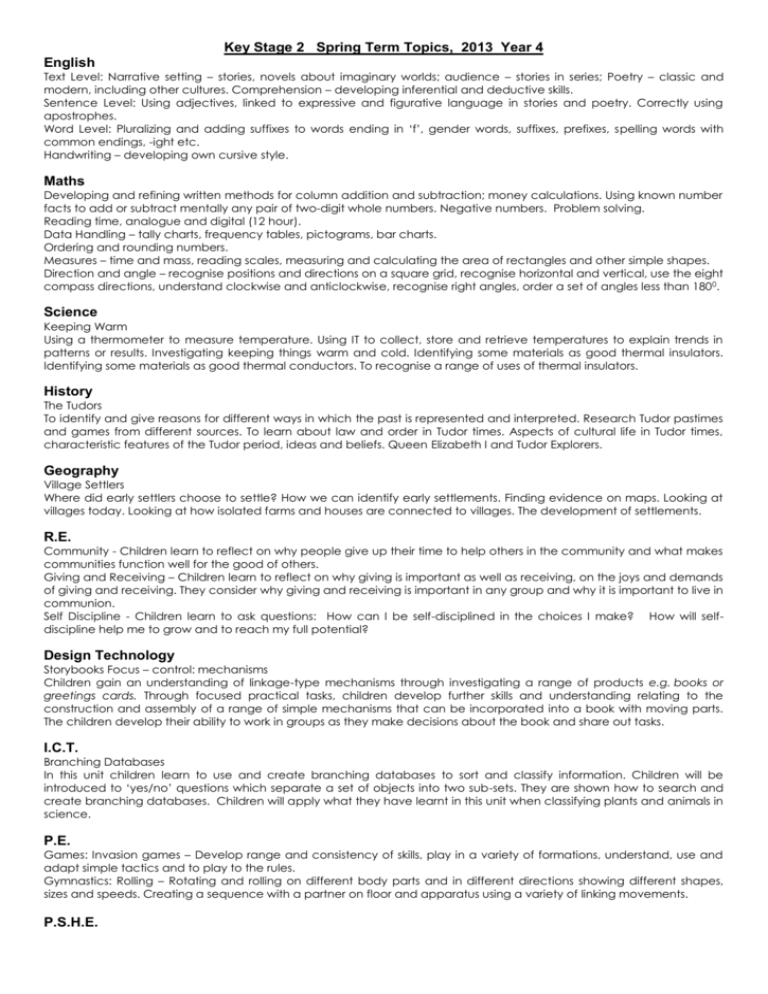
Key Stage 2 Spring Term Topics, 2013 Year 4 English Text Level: Narrative setting – stories, novels about imaginary worlds; audience – stories in series; Poetry – classic and modern, including other cultures. Comprehension – developing inferential and deductive skills. Sentence Level: Using adjectives, linked to expressive and figurative language in stories and poetry. Correctly using apostrophes. Word Level: Pluralizing and adding suffixes to words ending in ‘f’, gender words, suffixes, prefixes, spelling words with common endings, -ight etc. Handwriting – developing own cursive style. Maths Developing and refining written methods for column addition and subtraction; money calculations. Using known number facts to add or subtract mentally any pair of two-digit whole numbers. Negative numbers. Problem solving. Reading time, analogue and digital (12 hour). Data Handling – tally charts, frequency tables, pictograms, bar charts. Ordering and rounding numbers. Measures – time and mass, reading scales, measuring and calculating the area of rectangles and other simple shapes. Direction and angle – recognise positions and directions on a square grid, recognise horizontal and vertical, use the eight compass directions, understand clockwise and anticlockwise, recognise right angles, order a set of angles less than 180 0. Science Keeping Warm Using a thermometer to measure temperature. Using IT to collect, store and retrieve temperatures to explain trends in patterns or results. Investigating keeping things warm and cold. Identifying some materials as good thermal insulators. Identifying some materials as good thermal conductors. To recognise a range of uses of thermal insulators. History The Tudors To identify and give reasons for different ways in which the past is represented and interpreted. Research Tudor pastimes and games from different sources. To learn about law and order in Tudor times. Aspects of cultural life in Tudor times, characteristic features of the Tudor period, ideas and beliefs. Queen Elizabeth I and Tudor Explorers. Geography Village Settlers Where did early settlers choose to settle? How we can identify early settlements. Finding evidence on maps. Looking at villages today. Looking at how isolated farms and houses are connected to villages. The development of settlements. R.E. Community - Children learn to reflect on why people give up their time to help others in the community and what makes communities function well for the good of others. Giving and Receiving – Children learn to reflect on why giving is important as well as receiving, on the joys and demands of giving and receiving. They consider why giving and receiving is important in any group and why it is important to live in communion. Self Discipline - Children learn to ask questions: How can I be self-disciplined in the choices I make? How will selfdiscipline help me to grow and to reach my full potential? Design Technology Storybooks Focus – control: mechanisms Children gain an understanding of linkage-type mechanisms through investigating a range of products e.g. books or greetings cards. Through focused practical tasks, children develop further skills and understanding relating to the construction and assembly of a range of simple mechanisms that can be incorporated into a book with moving parts. The children develop their ability to work in groups as they make decisions about the book and share out tasks. I.C.T. Branching Databases In this unit children learn to use and create branching databases to sort and classify information. Children will be introduced to ‘yes/no’ questions which separate a set of objects into two sub-sets. They are shown how to search and create branching databases. Children will apply what they have learnt in this unit when classifying plants and animals in science. P.E. Games: Invasion games – Develop range and consistency of skills, play in a variety of formations, understand, use and adapt simple tactics and to play to the rules. Gymnastics: Rolling – Rotating and rolling on different body parts and in different directions showing different shapes, sizes and speeds. Creating a sequence with a partner on floor and apparatus using a variety of linking movements. P.S.H.E. Citizenship Links – Unit 7 – Children’s Rights – Human Rights Children learn to recognise what is fair and unfair and the difference between right and wrong. To understand the nature and consequences of racism, teasing, bullying and aggression and how to respond and ask for help
